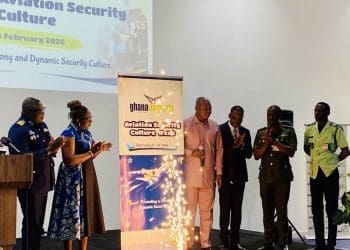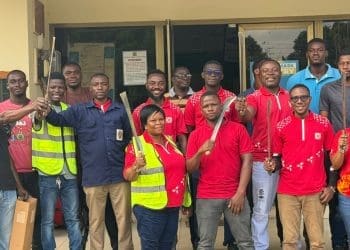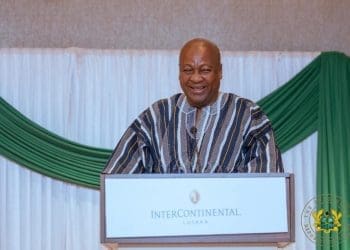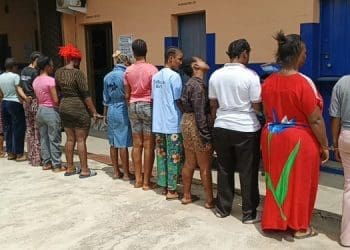The High Court in Tamale has delivered a landmark ruling affirming ownership of more than 9,000 square kilometres of land in the Savannah Region to the Jahori Clan, in a decision that reshapes the balance of customary authority in the Bole Traditional Area.
The case, presided over by His Lordship Justice Richard Mac Mogyapwah, Justice of the Court of Appeal sitting as an additional High Court judge, dismissed the claims of Bolewura Sarfo Kutuge Feso I, the traditional overlord of Bole, who sued on behalf of the descendants of Ndewura Jakpa, founder of the Gonja Kingdom.
In its judgment dated July 23, 2025, and reported by The Law Platform Library as [TLP/HC/2025/02], the Court ruled decisively in favour of the Jahori Clan, cementing their ownership rights and awarding costs of GH₵70,000 against the plaintiff.
Background to the dispute
The litigation began nearly two years ago when the Bolewura sued Fuseina Nungbaso and two others, arguing that all lands within Bole and, by extension, the Bole Traditional Area, belonged exclusively to the descendants of Ndewura Jakpa.
He contended that as Bolewura, he held those lands in trust on their behalf.
Represented by lawyer Terrence Ninnang, the Bolewura maintained that the defendants were not descendants of Ndewura Jakpa and therefore lacked any legitimate interest in the contested land.
He sought the court’s intervention to prevent what he described as a usurpation of his traditional authority.
The defendants, however, countered through their lawyer, Stephen Obeng Darko, that the land—known as “Jahori Lands”—had always belonged to the Jahori Clan and was under the authority of the “Jahoriwura.”
They emphasised that under Gonja custom, lands could be owned not only by skins but also by families and clans, with authority vested in their heads.
Court examines customary and traditional evidence
In delivering judgment, Justice Mogyapwah drew on the provisions of the Evidence Act, 1975 (NRCD 323), particularly sections 10, 12, and 14, which outline the burden of proof in civil matters.
He stressed that in customary land disputes, courts must weigh conflicting traditional evidence and focus on demonstrable acts of ownership rather than narratives alone.
The court found that the defendants had produced sufficient and persuasive evidence of their possession and ownership, including overt acts of control over the disputed land.
By contrast, the plaintiff failed to discharge the burden of persuasion, making his case appear “less believable” in the eyes of the court.
Previous judgments strengthen the defendants’ case
The defendants further bolstered their position by producing evidence of a prior judgment in their favour.
They referred to Suit No. NR/TL/HC/E1/25/21, Jahoriwura Fuseini Nungbaso & 2 Ors. v. Kotobire Ibrahim @ Sonyowura & Anor, in which the High Court had already declared title to the same land in their favour.
Although the Bolewura claimed no knowledge of the earlier ruling, the defendants tendered the certified judgment—filed as Exhibit 7—which had neither been set aside nor appealed.
They also presented proof of registration at the Lands Commission (Exhibit 10), establishing that their interest and title had been lawfully recognised.
Justice Mogyapwah acknowledged that while High Court decisions are not binding precedents on other High Courts, they can serve as persuasive evidence.
He concluded that the previous judgment carried significant weight, particularly since the plaintiff and his witnesses denied any involvement or knowledge of the proceedings.
Limits of Bolewura’s authority
The judgment also clarified the scope of the Bolewura’s authority. The court noted submissions from the defendants that not all lands within the Bole Traditional Area fall under the Bolewura’s direct control.
Other chiefs, including the Chriwura, Tarewura, Sonyowura, Konwura, and Sakpawura, also oversee distinct lands.
By recognising that customary ownership can be vested in families and clans, the ruling weakens the long-held perception that the Bolewura alone commands overarching authority over lands in the area.
Implications for customary land tenure
The decision is expected to have far-reaching implications for land governance and disputes in the Gonja Kingdom and beyond. For centuries, debates have persisted over whether land ownership in northern Ghana is universally vested in “skins” or whether families and clans may also hold direct ownership rights.
By siding with the Jahori Clan, the High Court has reaffirmed that clans, under customary law, can exercise full ownership and control, so long as they can demonstrate sustained acts of possession.
Legal analysts say the ruling may embolden other families and clans to assert their rights in court, where traditional overlords claim universal ownership.
Court awards costs against plaintiff
Having dismissed the Bolewura’s action in its entirety, the court awarded costs of GH₵70,000 against him in favor of the defendants.
For the Jahori Clan, the ruling represents not only the vindication of their ownership rights but also the restoration of their historical place in the Bole Traditional Area. For the Bolewura, it marks a major legal and customary setback, with questions now raised about the extent of his authority over lands in the Savannah Region.














